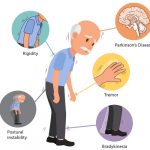Written by Dr. Jyotsana Shree and Reviewed by Dr.Manvir Bhatia-10/12/2024
Obstructive sleep apnea involves a common sleeping disorder where people’s breathing stops and restarts in a typical, repetitive manner due to blockage to the air. Though many factors contribute to OSA, excess weight tops the list. Individuals can dramatically improve their symptoms and health by comprehending the connection between weight and OSA and an effective weight management approach.
How Weight Contributes to Sleep Apnea
Excess weight, particularly in the neck and abdominal areas, increases the potential to acquire OSA. The presence of fat accumulation in the throat area, known as pharyngeal fat, can obstruct the air passageway during sleep, causing snoring and disrupted breathing. Lower airflow due to a compressed chest due to abdominal fat further narrows the potential for airway collapse.
Research studies have shown that even a 10% weight increase will increase sixfold OSA risk. On the other hand, a weight loss of 5-10% can reduce the severity of OSA.
The Vicious Cycle: Sleep Apnea and Weight Gain
Not only is excess weight a cause of OSA, but it can also make it hard to lose. Hormones that control hunger are disrupted because of poor sleep due to OSA, and levels of ghrelin (stimulates appetite) increase and leptin (suppresses appetite) decrease. This translates into a craving for high-calorie foods.
Daytime fatigue is another symptom of OSA and reduces physical activity, making it harder to burn calories. Over time, this lack of energy, combined with increased appetite, can cause additional weight gain that aggravates symptoms of OSA.
Medical Consequences of Sleep Apnea and Obese Conditions
OSA and obesity together increase the risk of many serious health problems, including all of the following:
- Hypertension
- Heart disease
- Cerebral thrombosis
- Diabetes type 2
Metabolic syndrome – a combination of obesity, hypertension, hypercholesterolemia, and impaired glucose uptake
Severe obesity can also trigger obesity hypoventilation syndrome (OHS). This condition is caused by excess fat that limits breathing and worsens oxygen levels. Patients diagnosed with OSA combined with OHS are at a higher risk for potential complications of cardiovascular origin.
The psychological impact of OSA
OSA affects not only physical health but also significantly impacts mental well-being.
Key psychological impacts of OSA include:
Depression
- Persistent low mood or irritability
- Anhedonia (reduced interest/pleasure)
- Changes in appetite and weight
- Sleep disturbances
- Fatigue and low energy
- Feelings of guilt or worthlessness
- Difficulty concentrating
- Suicidal thoughts or ideation
Anxiety Disorders
- Excessive worry or fear
- Restlessness
- Muscle tension
- Difficulty concentrating
- Sleep disturbances
Serious Psychological Distress
- Persistent sadness or anxiety
- Feelings of being overwhelmed
- Irritability
- Physical symptoms (e.g., headaches)
Cognitive Impairment
- Impaired memory and attention
- Difficulty with executive functions
- Slower reaction times
- Reduced mental processing speed
Suicidal Ideation
- Increased risk of suicidal thoughts and behaviors
Irritability and Mood Instability
- Frequent mood swings
- Increased irritability and frustration
- Decreased stress tolerance
Reduced Quality of Life
- Reduced social interaction
- Strained relationships
- Lower participation in leisure activities
- Increased risk of social isolation
Weight Management Strategies to Improve OSA
Weight loss is the most effective technique to control OSA. Dietary alterations, augmented physical activity, and behavioral support yield the best-combined results.
1. Healthy Eating
Focus on a balanced diet that emphasizes:
- Calorie Control: Women aim for 1,200–1,500 calories per day, and men for 1,500–1,800 calories.
- Nutrient-rich foods: Incorporate lean proteins, fiber, and complex carbohydrates such as whole grains and vegetables.
- Avoiding High-Calorie Foods: Reduce the consumption of sugary drinks, fried foods, and processed snacks.
Practical tips include:
- Keeping track of everything you consume: record what you eat.
- Eating three or more meals a day: do not skip meals.
- Using smaller plates to control portions.
2. Exercise Regularly
Physical activity is essential for weight loss and overall health. While exercise alone won’t cure OSA, it complements dietary changes.
- Start with 30 minutes of moderate activity, like walking, five days a week.
- Incorporate everyday movements like taking the stairs, parking farther away, or stretching at work.
- Find an exercise buddy to stay motivated.
3. Behavioral Support
In addition, working with a counselor or weight-loss specialist may help you identify challenges and develop strategies to overcome them. Many programs combine:
- Calorie tracking and meal planning.
- Techniques to manage emotional eating.
- Regular follow-ups to sustain progress.
4. Advanced Options
For people suffering from severe obesity, further interventions such as weight-loss medications or bariatric surgery may be recommended. These options can help jumpstart weight loss when combined with lifestyle changes.
Benefits of Weight Loss for OSA
More importantly, weight loss reduces symptoms of OSA and enhances overall health in general. The benefits include:
- Lower blood pressure and better heart health.
- Reduced risk for developing type 2 diabetes.
- Better quality sleep and energy.
After considerable weight loss, a repeating sleep study can confirm improvements in OSA.
Summary
Weight and OSA feed into each other in a cycle, worsening both conditions if left unmanaged. The good news is that this cycle can be broken. Adopting a healthy diet, staying active, and knowing how and when to seek support will facilitate weight loss and improvement of OSA.
References:
- American Thoracic Society. Weight Loss and Sleep Apnea. Patient education information series. Last accessed on 22.11.2024. Available at: https://www.thoracic.org/patients/patient-resources/resources/weight-loss-and-sleep-apnea.pdf.
- Sleep Foundation. How Weight Affects Sleep Apnea. Last accessed on 22.11.2024. Available at: https://www.sleepfoundation.org/sleep-apnea/weight-loss-and-sleep-apnea.
- Kaufmann CN, Susukida R, Depp CA. Sleep apnea, psychopathology, and mental health care. Sleep health. 2017 Aug 1;3(4):244-9.










